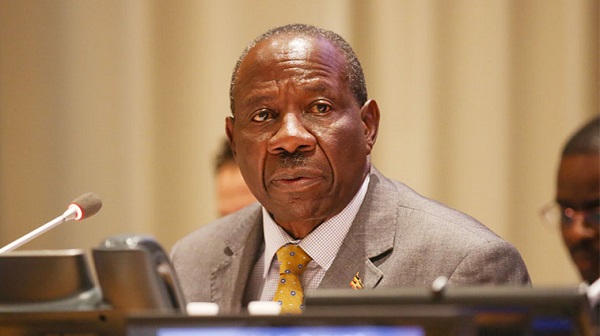
Election money
That is why even now, the rest of the Shs1.5 trillion that will soon be passed by parliament as supplementary budgets is seen as money intended to fund NRM campaigns.
It might appear early days to the 2021 elections, but preparations have already kicked off. The NRM rolled out its electoral road map and recently at the retreat of its MPs at Kyankwazi selected President Museveni as their flag bearer in the 2021 polls.
Supplementary budgets have a major concern, especially before elections. The International Monetary Fund (IMF) had a major fall-out with President Museveni over supplementary budgets; especially the ones requested towards elections.
But the supplementary budgets have grown year on year. And if the past is anything to go by, ahead of the 2021 elections, more supplementary budgets are in the pipeline.
Year on year, President Museveni’s government has been tabling more and bigger supplementary budgets. They have been increasing from 4% in 2008/2009 of the national budget, to 7.2% in 2009/2010 and over 30% in 2010/11.
In 2015, Finance Minister, Matia Kasaija requested for a Shs847 billion supplementary budget of which, only Shs11.9 billion was for development expenditure and a whopping Shs728.1 billion for recurrent expenditure.
Critics said it was a slush fund for Museveni’s 2016 bid.
One of Kasaija’s predecessors, Syda Bbumba, delivered supplementary budgets of close to a trillion shillings–with the last round coming in December 2010 right in the middle of campaigns.
Bbumba first got parliament to approve a supplementary of Shs600 billion then another of Shs380 billion.
Around that time, President Museveni had got Central Bank Governor Tumusiime Mutebile to draw from the reserves a staggering Shs1.7 trillion for acquisition of six Russian-made jets and their accompaniments.
It later emerged the six jets cost Shs108billion each or Shs654 billion in total and not the Shs1.7 trillion passed by parliament. That left Shs1.1trillion unexplained.
While some of these funds might have been spent on the other weapons, as this was classified expenditure, central bank Governor Tumusiime Mutebile later said this “not completely transparent” expenditure might have found its way into funding Museveni’s campaign.
Mutebile said they might be the reason the economy was thrown into “total chaos almost after the last elections”.
“I cannot determine how much of the money that I have created ends up in political electioneering. It happens,” he said.
Basing on the trend of previous elections spending and estimates by insiders, The Independent estimated that the ruling party spent over Shs350 billion in 2011. That figured went up to over Shs500 billion in 2016 and is set to increase further in 2021.
The consequences are always dire as such spending often diverts resources from critical areas. Also, to fill the gap, the central bank is always forced to sell treasury bonds to the private sector, sucking money from it and crippling private investment.
After the 2011 elections, Uganda’s inflation rate jumped to about 30%. And after the 2016 elections, economic growth fell to slightly over 3%.
Other factors, such as the civil war in South Sudan, which cut off Ugandan traders, might have contributed to the poor economic performance but diversion of resources was critical. For instance, the government failed to pay some Shs400 billion owes to local entities. These in turn failed to meet their loan obligations. Many of them folded. A few left standing were crippled.
It is because of such consequences that experts say that while the government is entitled to this arrangement, supplementary budgets should, under current regulations, not exceed 3% of the entire national budget.
But with elections looming and a threat of war with Rwanda, that is the last caution President Museveni might want to consider.
****
 The Independent Uganda: You get the Truth we Pay the Price
The Independent Uganda: You get the Truth we Pay the Price



